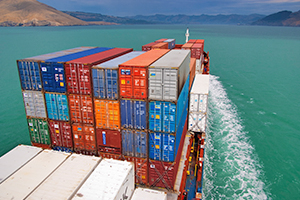Maritime rules and compliance for commercial ships
Maritime rules and compliance ensure safe and lawful operations at sea, covering regulations, laws, and bylaws designed to protect vessels, crews, passengers, and the environment. These guidelines help maintain safety, prevent accidents, and promote sustainable maritime practices.
Rules, laws and bylaws
New Zealand Port and Harbour Marine Safety Code
We operate under the New Zealand Port and Harbour Marine Safety Code which provides measures for the safe management of ships in ports and harbours.
It includes measures to prevent serious harm to people and the protection of the marine environment.
The code is administered by Maritime New Zealand.
It is a voluntary code, with most regional councils and port companies in New Zealand having adopted its requirements.
Within Canterbury, the code has been assessed as applying to the Lyttelton and Timaru Pilotage Areas, the Kaikōura Peninsula area and Akaroa Harbour.
In these areas, a risk assessment has been undertaken for commercial vessel operations and any recreational vessel activities that may have an impact on those operations.
A Safety Management System (SMS) has also been implemented, covering all waterways across the region and coastal areas to the 12-nautical mile limit.
Harbourmaster’s Direction and Navigation Safety Bylaw
Each SMS contains operating procedures that are used along with codes of practice, the Harbourmaster’s Direction and our Navigation Safety Bylaw, to govern the safety of navigation in our region.
These are all living documents that are updated at various intervals (the longest being five for the bylaw) as we learn more over time and can incorporate more effective ways of operating.
Download the Harbourmaster's Direction 16-1 (PDF file, 4.23MB)
Download the Navigation Safety Bylaw 2016 and Controls (PDF file, 9.16MB)
Maritime compliance and safety
Dangerous goods
The Harbourmaster has elected Maritime Rules Part 24A.86 (2) to receive notifications only of Class 1 dangerous goods. In practice, ships’ agents or the relevant port company will handle this reporting. They will hold the dangerous goods information on file and have it available for inspection at any time by the Harbourmaster rather than sending it directly.
Pilots and Pilot Exempt Masters
Under Maritime Rules Part 90, all pilots and Pilot Exempt Masters must provide a record of their annual port transits and any assessments undertaken during the year to the Harbourmaster each March.
Download the Harbourmaster's Direction (PDF File, 4.2 MB) for more information.
Discharge rules for vessels
The discharge of garbage, including plastic, incinerator ash, cooking oil, and food waste, is prohibited within Canterbury waters. Specific rules govern the discharge of untreated sewage, treated sewage, bilge waste, and other contaminants.
Download the discharge rules for vessels (PDF file, 50.68KB) for more details on regulations within the Canterbury Coastal Marine Area.

